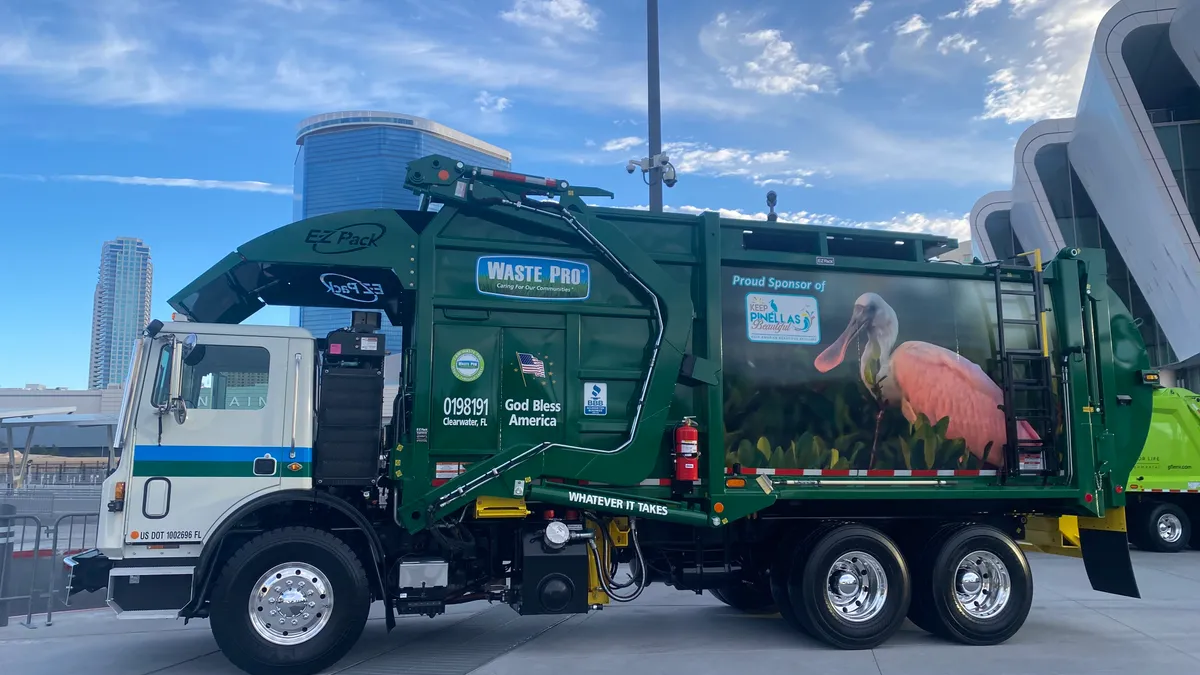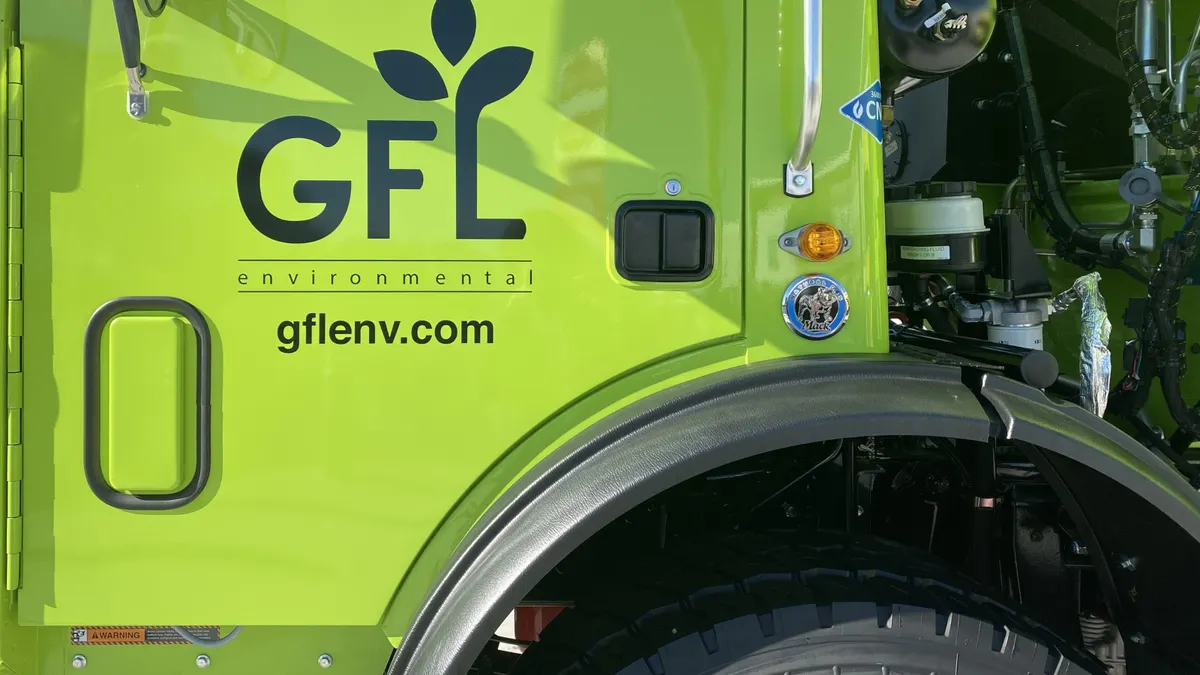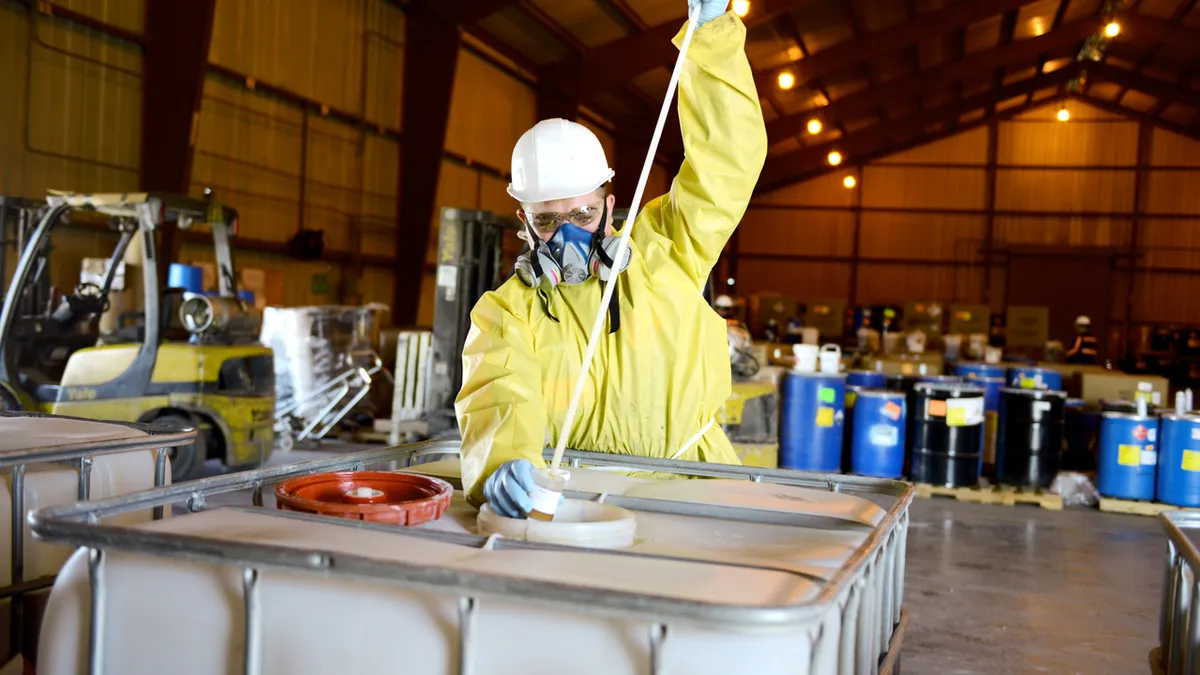Waste Pro has operated in a highly competitive market in its home state of Florida for more than 20 years. Executives say their long-term success will continue to be based on smart acquisitions, investments in their employees and — maybe most importantly — good Google reviews.
“When we're looking at [buying] a company, the first thing to do is get our phones out and look at the Google rating,” said COO Keith Banasiak.
Waste Pro prides itself on having the highest reviews in the regions it serves, a metric that’s even discussed in regular manager meetings. In a market filled with both publicly traded and private competitors, commercial and residential customers “can choose anybody they want to haul their garbage. They’re going to go to the internet to help decide.”
Waste Pro, which describes itself as the fastest-growing private waste company in the Southeast, serves about 2 million residential and 100,000 commercial customers. One area of focus is its 250-plus exclusive municipal contracts. The company recently announced its 13 newest ones in Florida, Louisiana and Mississippi could bring in more than $41 million in revenue during the initial contract terms and about $740 million over the total contract terms.
To sustain that growth and keep customers five-star happy, Waste Pro relies on both careful hiring processes and employee retention programs such as its CDL training school that has seen about 500 graduates. Waste Pro is launching a new technician training program this summer.
Banasiak and CEO Sean Jennings sat down with Waste Dive during WasteExpo to discuss their priorities and vision for the company’s growth.
This conversation has been edited for length clarity.
WASTE DIVE: You recently announced Waste Pro was on track to hit $1.3 billion in revenue in 2024 and have a goal to hit $2 billion in three to four years. What’s the strategy for longer-term success?
SEAN JENNINGS: We’re always improving our quality of leadership, and that's a huge constant. We also want to have a more well-balanced book of business not being so reliant on franchise work, having a little bit bigger of a portion of open market work or disposal to de-risk business.
We're definitely very proud to still be a truly private business with no outside equity. We want to make equity in Waste Pro more and more available to people who are actually running the business and not just outside investors. We would rather grow more slowly and keep everything in-house.
KEITH BANASIAK: I think probably the biggest thing is we have to be nimble, and Waste Pro’s a nimble company. We’re always concerned about the experience of our employees and always trying to make that better. It's not always easy. The employee today may not be as career-minded as an employee 10 years ago, and especially 20 years ago, so it's building that culture to make them want to stay and want to have a career.
How do you approach your hiring and retention process, and what’s been working best for you?
BANASIAK: For management, we’re finding that people are less attracted to the bigger companies and looking for opportunities to be an entrepreneur within a company like Waste Pro. We want the manager to be the owner, we want him to take ownership of not only the facility but also know the competitors, know the customers, get active in the community and make decisions. That alone helps attract the next level of supervisors. That starts with good, effective recruiting. We have a really good recruiter in our corporate office, and we have a really good interview process.
JENNINGS: We still focus on whoever's the best person for the position, but we try to go out and create an environment where all different types of people can be successful, whether it's people who speak the same language, people who look like you. We've also gone through the Second Chance programs where we interview people who were still incarcerated. The focus is never trying to diversify the workforce, it's about who's the best person for the job, and trying to reach every single person that we can.
You have about 4,800 employees now, with many of those coming on due to expansions and acquisitions, including your recent announcement of acquiring Louisiana-based Workbox. What is your M&A strategy looking like right now?
BANASIAK: We have a really vibrant pipeline within our footprint. We look for companies that fit in well with Waste Pro and have similar characteristics. We don't buy companies to build revenue, because we're not looking at making shareholders happy. We'll do our due diligence and make a decision quickly. That attracts some potential [businesses] to come on board, because they know that the process will be relatively quick.
It’s more active now than it has been in the past several years. I think that's industry wide. The cost of operations for a small hauler has just gone up exponentially. The ability to get people and pay the benefits cost and things like that is just driving some of the small haulers out of business. We look at anywhere we can tuck in.
JENNINGS: We also look at people who want to stay on and be involved in the business. Because ultimately, any of the good companies we’re looking at buying, it's because they have really great people. Somebody who just wants to sell their business and totally walk away, it's probably not going to be a good fit for us.
Waste companies are managing a lot of expenses and upgrades right now, including fleet optimization. How are you thinking about your fleet priorities?
BANASIAK: We've done a great job at standardizing and working closely with partners, not just vendors. If there's a product change or something we'd like to see, we can work with them.
The challenging part, obviously, is technicians. We are opening up our own training facility, hopefully August 1, so we can bring in [technicians], including high school graduates that don't want to go to college but want an opportunity. We're gonna give them the tools to get started working for us. If they solely focus on preventative maintenance and brakes, those are two good things to get somebody to learn enough that they can then graduate and move up within our company into a bigger role.
We've already got our driver training program so they can learn to drive a truck, and we can qualify them and give them their CDL. So that works really well.
Waste Pro has numerous municipal contracts. What’s changed over the years in terms of what municipalities are looking for or how the agreements are laid out?
BANASIAK: Lately, for municipal, more carted is better because that's less labor. It’s difficult to hire, because the guys don’t want to be on the back of a truck. We're in the Southeast where it's hot, so trying to get municipalities to get away from the “take-all” approach where you can throw it all on the curb and someone will pick it up.
When you're part of that community, you have the ability to talk to elected officials and city leaders and staff and say, “Listen, you know, we're having challenges with this part of your contract, what can we do to make those changes?” It’s just having good relationships with those people.
JENNINGS: It’s kind of a mixed bag. We have some municipalities where all they want is just higher level service from what they had. And some don't care, they just don't think that they can sell the price that it takes to get the service done now. It just depends on the market.
BANASIAK: Our core business is collections. We have some landfills, some MRFs. We’re not bad in the MRFs, but they just don’t make you money. The deal [with some contracts] is that if you want the business, you have to handle the recycling … One of the nice things about the contracts with these cities now is we only do contracts where there is a fee for processing [as opposed to being paid based on market value of the material].
JENNINGS: The recycling and disposal portions of some of the contracts are not separated yet in Florida, so we’re not getting paid for a lot of that material. But even today, we're actively talking with a few municipalities about improving their recycling and building MRFs for them. But it’s going to have to benefit both parties.



















